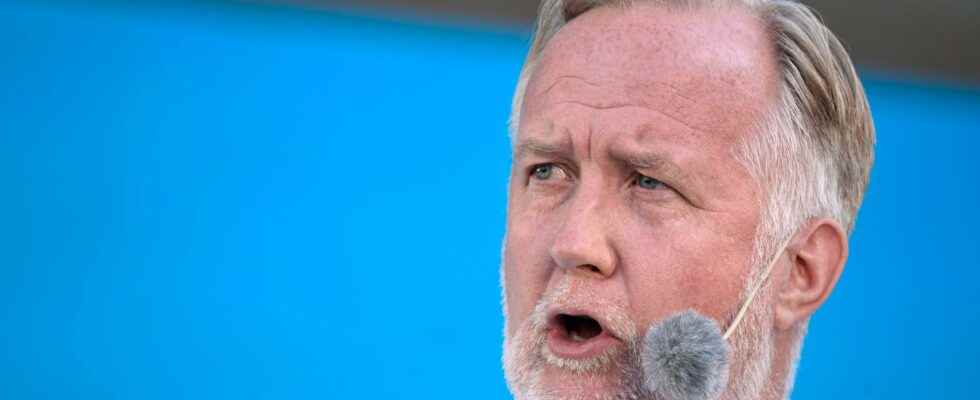Published: Less than 10 min ago
The government has invited talks on a long-term energy policy. The right-wing opposition says no thanks and believes that the Social Democrats are “bluffing” about nuclear power.
– The last time there were energy policy talks, two reactors were shut down, says the Liberals’ Johan Pehrson.
Electricity prices are hitting records, gas prices are soaring and the EU is calling on member states to store energy for what could be a harsh and cold winter. And this fall, Sweden will go to the polls.
Sweden is in the middle of an energy crisis, while at the same time there is a green industrial revolution that is hungry for electricity, Climate and Environment Minister Annika Strandhäll (S) said at a press conference in June.
During the summer, the government invited the opposition to talks to try to create long-term conditions in the energy field. “Everything is on the table” in the negotiations, says Energy Minister Khashayar Farmanbar (S). Even nuclear power.
“Brutal but honest”
However, the right-wing opposition in the form of the Moderates, the Christian Democrats, the Sweden Democrats and the Liberals have rejected the invitation and come up with counter-proposals. They believe the government is cheating.
– Considering how it went last time when there were energy policy talks, two reactors were shut down. We could not participate in it then, and we see no reason to participate in it now either. We need an energy policy that is based on the laws of physics and the needs of the Swedish nation, not wishful thinking and social democratic election rhetoric. It’s a rather brutal answer, but it’s very honest, says Liberal party leader Johan Pehrson.
It was in 2016 that the government, in the form of S and MP, concluded an agreement with the Moderates, the Center Party and the Christian Democrats called the energy agreement. Among other things, they agreed on the rules of the game for a green electricity system with completely renewable electricity production by 2040.
“Standing in a shit bin”
The agreement broke when M and KD left it in December 2019, citing, among other things, that the government did not even want to discuss new energy policy goals that protect the industry.
Johan Pehrson sees that there is value in settling the block boundaries – but only with parties that have “refreshed”.
– We would like there to be a broad agreement on central issues, this can apply to both defense policy, pension issues and energy policy, but when the starting values are that we have to satisfy the Center Party, the Green Party and the Left Party, then it is completely uninteresting.
He does not give much for the Social Democrats’ stance on the nuclear power issue.
– They have been using completely incomprehensible politics to punish Swedish nuclear power and now we are standing in a cesspool with crap up to our necks.
“They want to fight”
Energy Minister Khashayar Farmanbar (S) says that Swedish industry must be able to trust that politicians, even in opposition, and even during an election year, are prepared to sit down and hold talks.
– My view is that they want something to argue about in the election campaign, and I can understand the logic of the election campaign, but on the other hand, you have to know that when you do that – when you pit wind power against nuclear power, when we say we need all those power plants – they also damage Swedish industry, he says.
– SKF, SSAB, LKAB, Northvolt, they all want politicians to sit down and say yes to wind power, but also in the long term to be able to talk about other types of power and come to an agreement, in order to have stability. That message has been very clear from the business world, says Farmanbar.
Facts
The Energy Agreement from 2016
The energy agreement is based on the framework agreement on Swedish energy policy from 2016 between the Social Democrats, the Moderates, the Green Party, the Center Party and the Christian Democrats.
The energy policy goals:
The energy policy must unite the three basic pillars of security of supply, competitiveness and ecological sustainability.
The goal in 2040 is 100 percent renewable electricity production. It is a target, not a cut-off date, that bans nuclear power, nor does it mean shutting down nuclear power by political decision.
In 2030, Sweden must have 50 percent more efficient energy use compared to 2005, expressed in terms of supplied energy in relation to gross domestic product (GDP).
Source: Government
Read more
